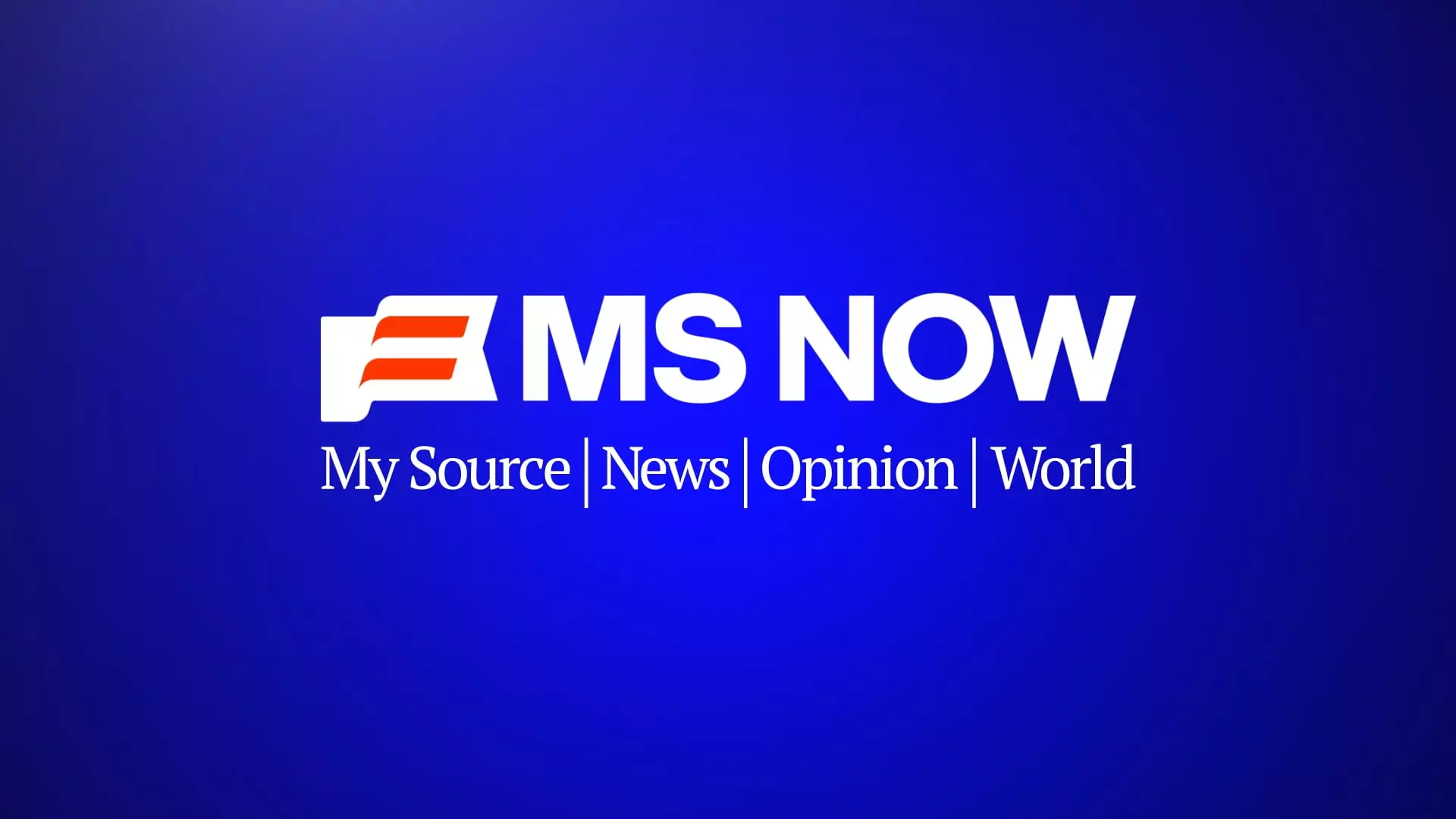In an era where media outlets are increasingly polarized and branded as advocates for specific ideologies, MSNBC’s decision to undergo a significant rebranding marks a strategic pivot—one that attempts to reposition the network within the broader spectrum of credible, center-right liberalism. By shedding its iconic peacock and adopting a more neutral, trustworthy moniker, MS Now endeavors to redefine itself amidst a turbulent political landscape dominated by partisanship and misinformation. This move is not merely cosmetic; it’s a calculated effort to distance the network from the perception of bias often associated with partisan news, aiming instead to appeal to a broader, more discerning audience that values Facts over fanaticism.
The Significance of Name Changes in an Age of Media Cynicism
The planned rebranding signals more than just a superficial facelift—it’s an assertion of independence. While MSNBC has long been perceived as leaning left, the new branding aims to craft an image of impartiality, or at least a balanced presentation of news. This appears to be a recognition that in today’s political environment, the old labels and branding strategies are losing effectiveness. Viewers are increasingly skeptical of media sources that seem to revel in partisanship, leading to a demand for outlets that can deliver honest, fair reporting without the militant partisan tone. The approach of rebranding and establishing a distinct newsroom—independent from NBC News—indicates a desire to appeal not just to progressive loyalists but also to centrist conservatives and moderates who seek reliable information without the ideological baggage.
Strategic Self-Assertion in a Competitive News Market
By spinning off as a separate company and launching an aggressive talent acquisition campaign, MSNBC (or MS Now) is clearly positioning itself to compete more effectively in a crowded media environment. The hiring of journalists from diverse backgrounds demonstrates an understanding that credibility is crucial in retaining viewers who are disillusioned with the sensationalism prevalent elsewhere. In essence, the network seeks to craft an identity rooted in legitimacy and trust, which is essential for a brand trying to adjust to the growing skepticism about mainstream media.
The decision to remove the familiar peacock logo from all Versant brands signals an attempt to shed associations with its previous corporate identity, one heavily linked to entertainment and corporate branding, in favor of a more serious, news-focused image. This move could be viewed as an effort to shed the baggage of bias and partisanship often associated with MSNBC, rebranding itself as a credible, independent source of information.
Implications for the Future of Media Fragmentation
This rebranding strategy highlights the broader trend of media fragmentation—networks trying to carve out their own niche by repositioning themselves as more trustworthy or balanced. The fact that CNBC and other Versant properties will also undergo logo and branding changes shows a concerted effort to unify their offerings under a new corporate identity, one centered on professionalism and reliability rather than traditional corporate icons.
However, it’s worth considering whether these branding changes can truly alter perceptions or if they are merely superficial. In an age where viewers often consume news through social media snippets or partisan feeds, a name change alone might not suffice. Yet, it does reflect a recognition among media executives that credibility and trust are becoming currency more valuable than ever.
Center-Right Liberalism: A Strategic Middle Ground
From a political perspective, this rebranding aligns with a center-right liberal approach—striving to find a middle ground that rejects extreme partisanship while still advocating for values like free speech, individual responsibility, and a balanced view of current events. By positioning itself as a more neutral news source, MS Now could potentially appeal to those who feel alienated by the overt bias of both left and right-leaning outlets. This shift acknowledges that a substantial segment of Americans desires honest, straightforward reporting that isn’t drenched in ideological rhetoric.
While critics might argue that this is a superficial attempt to sanitize a network with a certain ideological bent, the move indicates an understanding that in today’s political climate, credibility and trustworthiness are paramount. As media consumers become more skeptical, networks that can credibly position themselves as balanced—even if that means rebranding—gain a competitive advantage.

